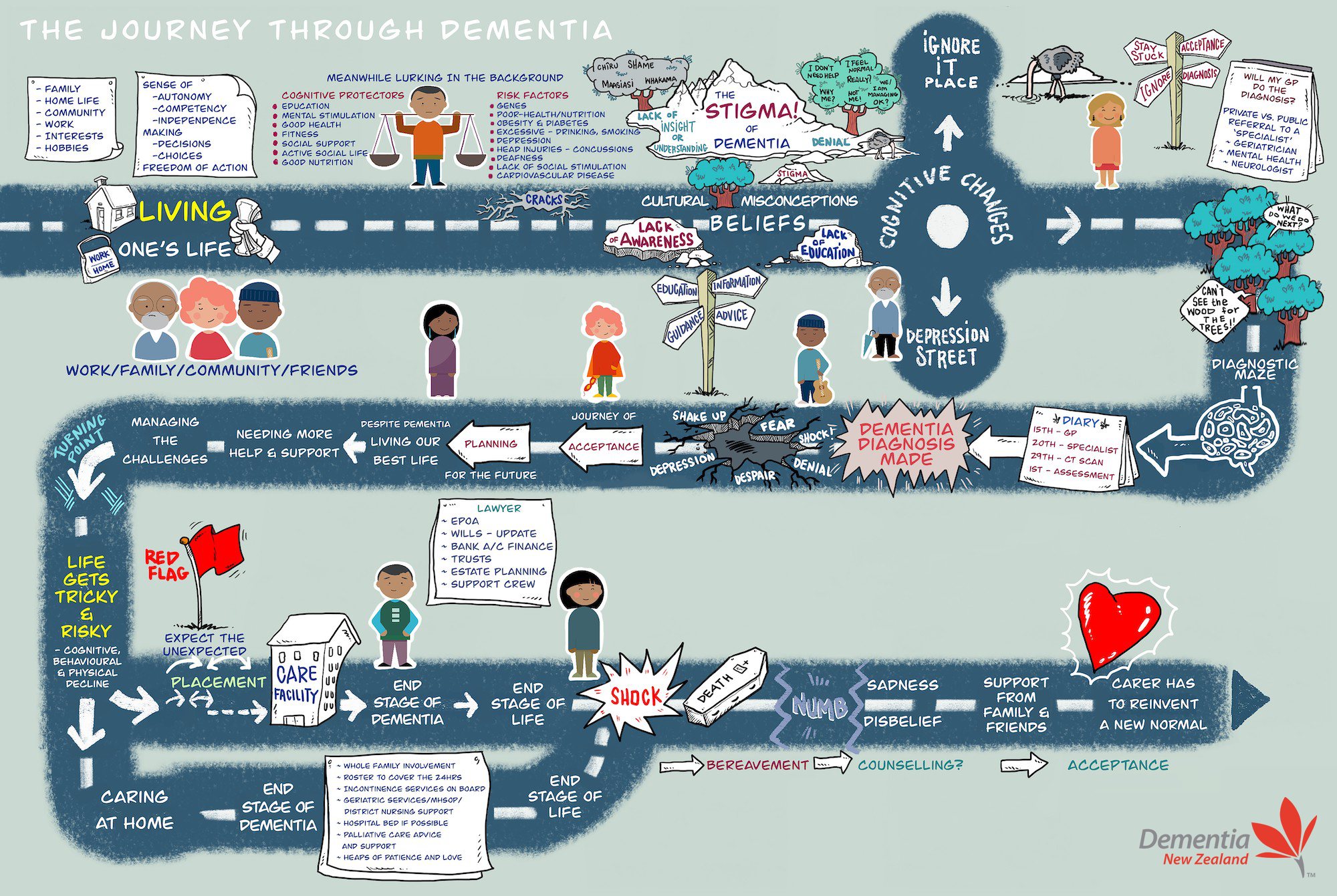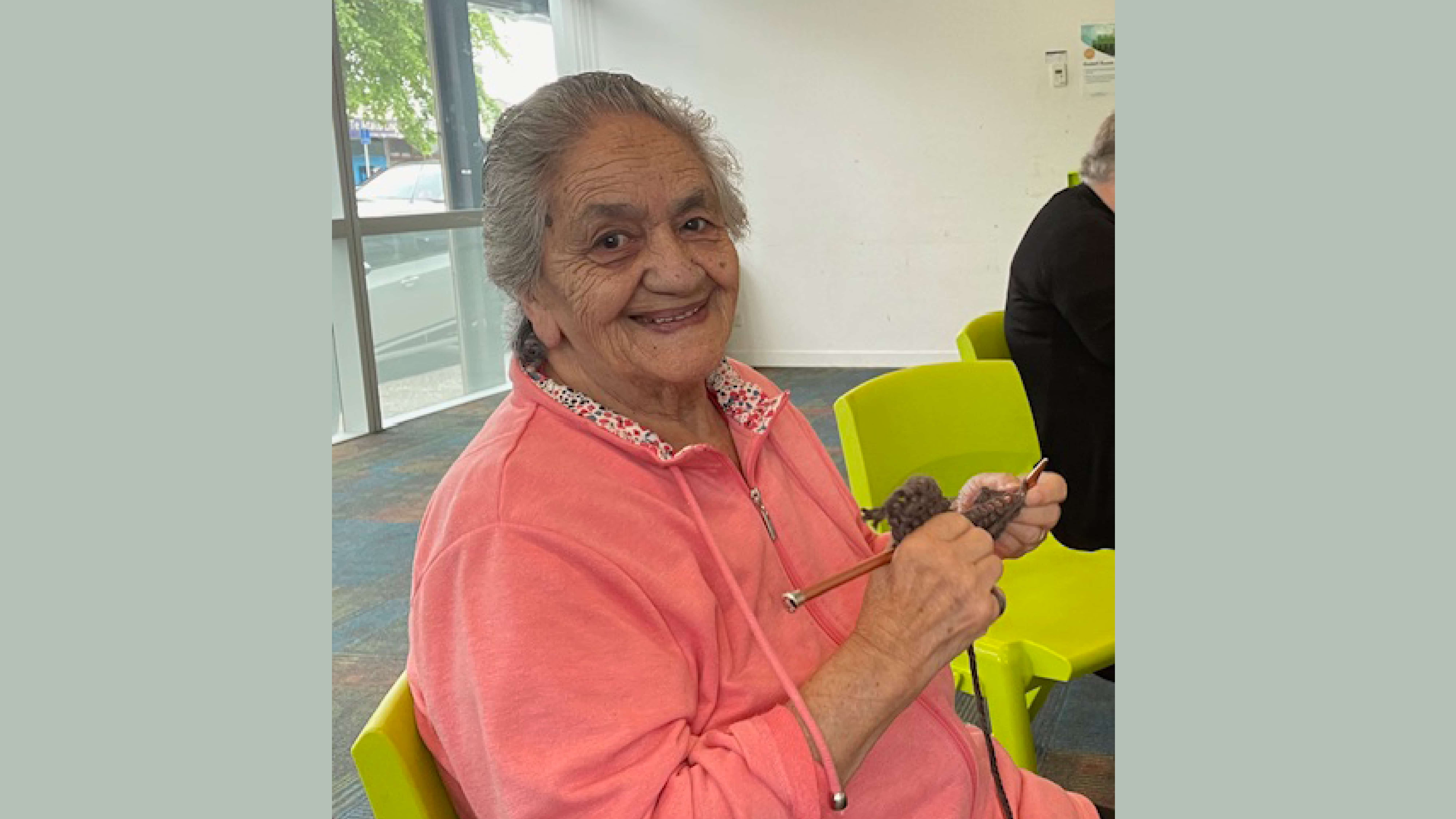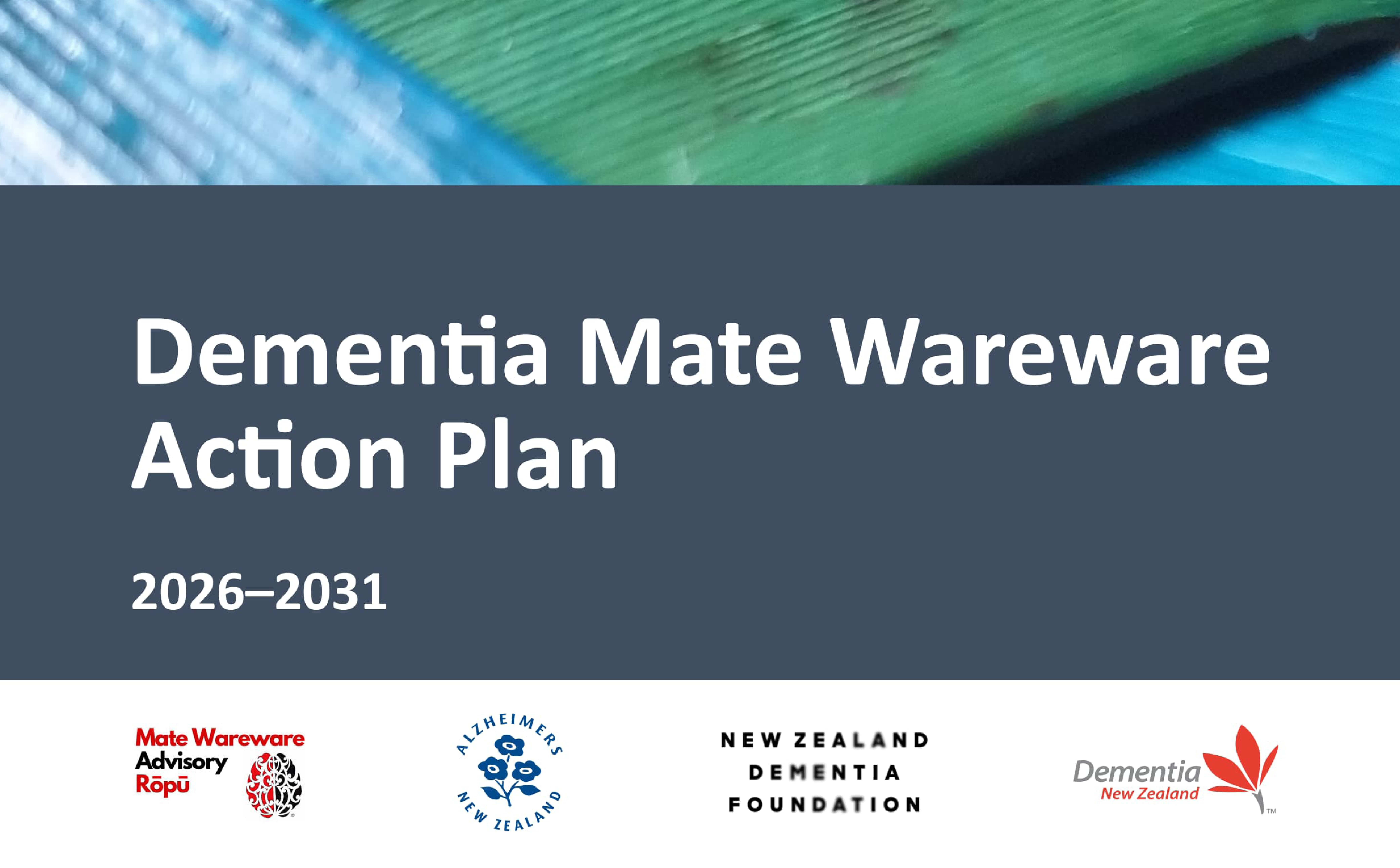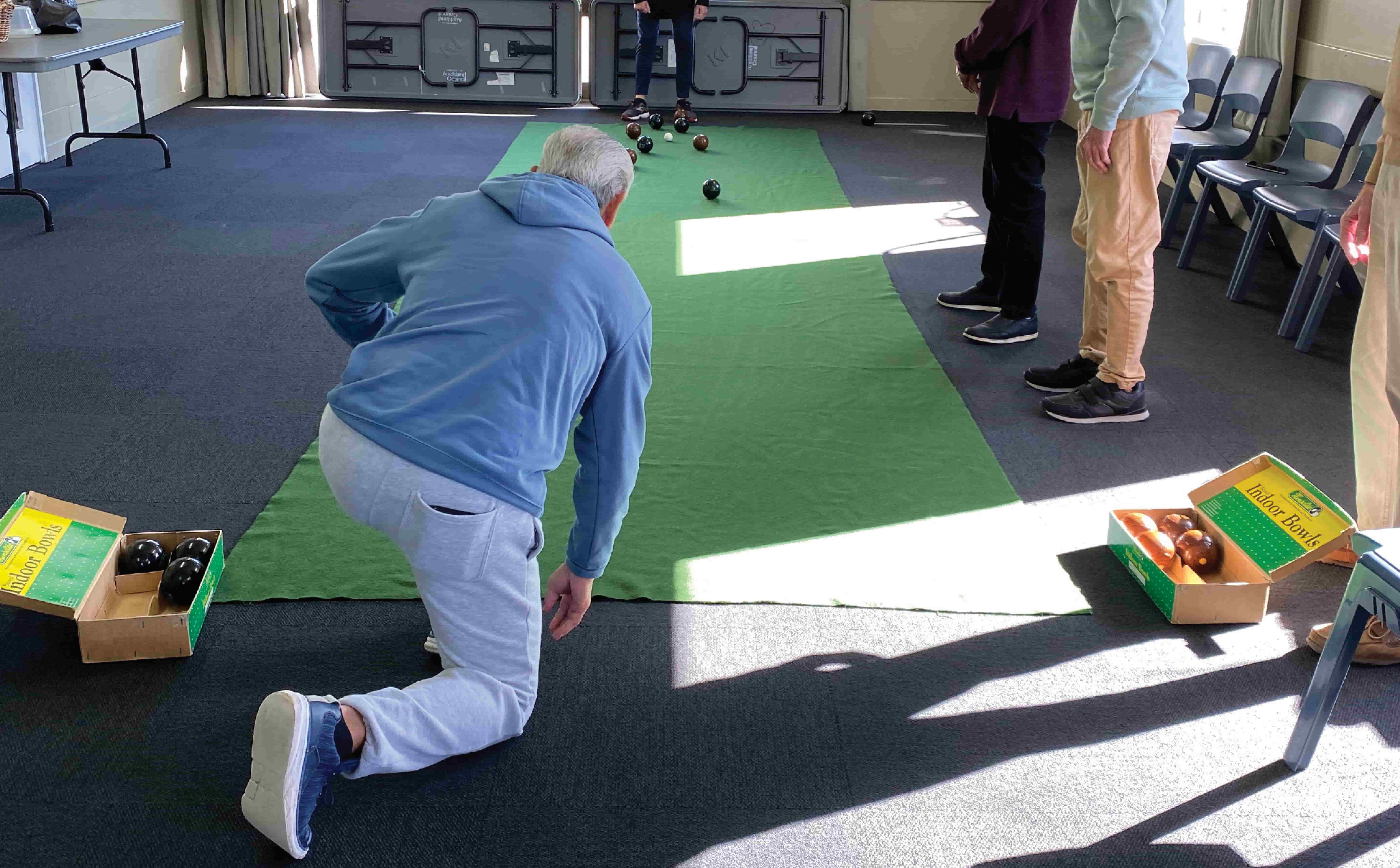The Dementia Journey
Subjective Memory Loss is experienced by most people as they age. In other words, normal age related memory loss
Mild Cognitive Impairment (MCI)
The person with Mild Cognitive Impairment is usually aware that they are getting forgetful. The people who are close to them may notice these changes as well. There is however no noticeable change in functioning on a day to day basis. People with MCI are more likely to develop dementia than people without MCI. Not all people with MCI will go onto develop dementia.
Mild dementia
The person with Mild Dementia may still be able to function independently despite their memory problems. However, their memory lapses have begun to affect them on a day to day basis – poor short term memory, losing things or getting lost, changes in personality, struggling with problem-solving, decision making and complex tasks, difficulty managing bills and money, difficulty organising or expressing thoughts. For some people there is also difficulty with language, finding words and answering questions when under pressure.
Moderate dementia
As the dementia progresses the person with a moderate dementia is likely to require more assistance and guidance in their daily lives. They struggle to perform daily activities and self-cares – with increasing confusion or poor judgment, greater memory loss, needing assistance with tasks, such as getting dressed, bathing, and grooming and marked changes in personality and behaviour.
Severe dementia
As the dementia declines further they will require more hands on assistance, supervision and care. The dementia begins to affect the person’s physical capabilities – a loss of the ability to communicate, a need for full-time daily assistance with tasks such as eating and dressing, difficulty walking, sitting, and holding one’s head up and, eventually, the ability to swallow, to control the bladder, and bowel function. At this point the person will require fulltime input from family or placement into care.









